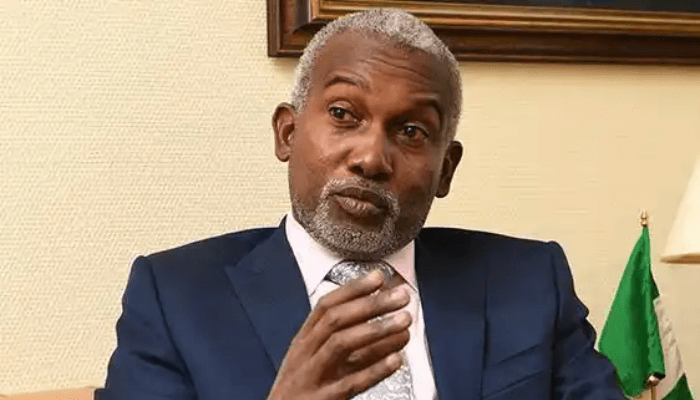…Sign BASA, other agreements
Nigeria and Colombia on Monday signed strategic trade agreements covering seven (7) critical sectors, including a Bilateral Air Service Agreement, to boost trade, tourism, security, and agriculture.
Yusuf Tuggar, Nigeria’s Minister of Foreign Affairs and Mauricio Jassir, Deputy Minister for Multilateral Affairs of Colombia’s Ministry of Foreign Affairs, outlined the deepening bilateral relations between the two nations while briefing State House Journalists on Monday, at the Presidential Villa, Abuja.
Both countries emphasised shared commitment to inclusive growth, trade expansion, and multilateral cooperation.
Vice President Kashim Shettima and Vice President of Colombia, Francia Márquez, had earlier led both countries’ technical teams, made up of ministers, to review areas of strategic importance.ce
Their discussions had focused on how to explore each country’s strategic advantage to drive trade, strengthen cultural ties and boost mutually beneficial investments.
Shettima had at the technical session, harped on President Bola Tinubu’s plans to lift millions of Nigerians out of poverty and expand the middle class as part of an ambitious eight-point agenda.
The partnership with Colombia, Latin America’s second-largest country, is seen as a critical step in enhancing Nigeria’s engagement with South America.
Read also: Nigeria-Colombia engagements will open new diplomatic chapter – Shettima
Tuggar highlighted the low-hanging fruit to include the opening up of its services between Nigeria and Colombia, leveraging on the recent similar agreement signed between Nigeria and Brazil.
He disclosed that Air Peace, Nigeria’s largest private airline, now has an opportunity to add Colombia to its expanding influence in both Latin and South America.
“The rich historical and cultural links between Nigeria and Colombia, noting that both governments, that of Nigeria and Colombia, are committed to pulling millions out of poverty and creating a wider middle class during their terms in office.”
He referenced the slave trade heritage and cultural affinities as an underlying foundation for renewed cooperation, especially in a year designated by the African Union on the theme of reparations.
Trade between the two countries, though currently focused on agricultural commodities like sesame seeds and cocoa, is targeted for significant growth. “Colombia is a major producer of coffee, and we have the land—we’ve started improving our yield of coffee,”
Tuggar cited Nigeria’s favourable conditions for Arabian coffee in the Mambila Plateau of Taraba State and Robusta coffee in Kogi State and Ekiti State.
“We are working on a bilateral air services agreement and exploring the possibilities of, for instance, Air Peac, which is now flying to Brazil and perhaps connecting to Bogotá, the capital of Colombia.” Such direct links could facilitate enhanced trade and people-to-people exchanges.”
He also spoke of expanding economic collaboration in the energy and mining sectors: “Colombia produces oil and sometimes imports. Some of our private sector players are even importing crude oil to refine locally. We both have rich mineral resources—emeralds in Colombia and gold in Nigeria, supported by our presidential gold mining initiative.”
Addressing security cooperation, Tuggar underscored mutual learning aspirations in counterterrorism. “Colombia has successfully brought an end to insurgencies in the past—FARC being a notable example—and we have lessons to learn as Nigeria continues its own progress,” he said.
Colombia Deputy Minister Jassir elaborated on Colombia’s vision for the partnership, underscoring the urgency to diversify the economy and foreign relations.
“We are in a different country in the extraction of oil, coal, and gas. It is very important to change our productive system to be more compatible with the challenges of global warming and climate change,”
Jassir articulated a shared desire by both countries to reorient relations toward the Global South, moving away from heavy reliance on the Global North. “We need to reinforce our relationship with not only Africa but also the Middle East, South Asia,” he said, emphasising Nigeria’s pivotal role in West Africa and Africa’s largest economy.
The Colombian Minister criticised recent global tensions and unilateral trade barriers harming developing nations. “We are against those unilateral decisions,” he insisted, referring to current conflicts such as the Gaza crisis as a broader attack on the principle of self-determination “, that is vital, that is essential in our countries.”
The Deputy Minister highlighted promising prospects for enhancing trade logistics, including discussions about establishing direct flights connecting Lagos to Colombia via Brazil.
He also announced the signing of a Memorandum of Understanding to initiate regular political consultations as a framework for systematic cooperation. “The only thing that matters for us is political will. When there is political will, there is a way to make some concrete steps,”
According to him, ” Nigeria could be the gateway for Colombia in Africa, and Colombia the gateway for Nigeria in Latin America,” he said, underscoring the importance of strengthening ties between regional blocs such as the Community of Latin American and Caribbean States (CELAC), the African Union, and the Economic Community of West African States (ECOWAS).
The Deputy Minister stressed the broader global mission: “In order to go from a unipolar to a multipolar world, it is essential that blocs like Africa and Latin America play their important roles.”








